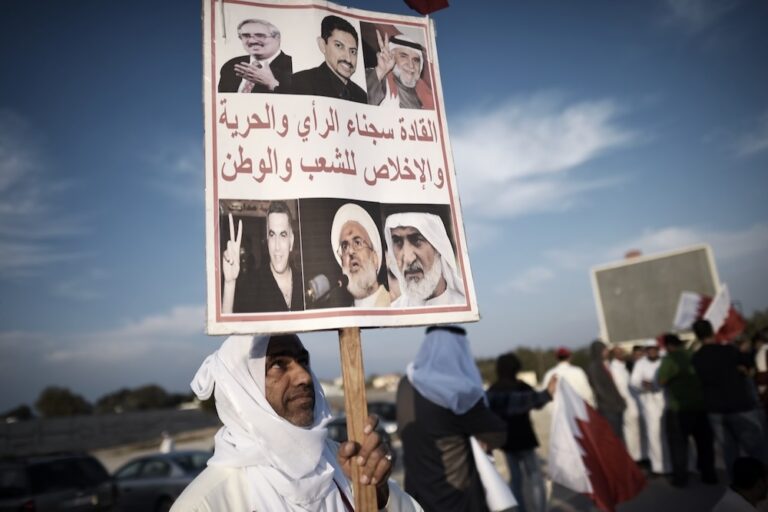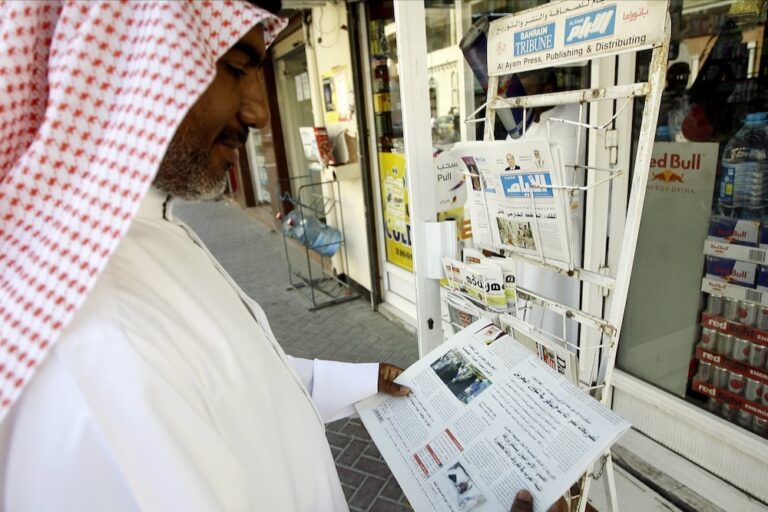The authorities banned the diary of a former British adviser to the government of Bahrain.
(BCHR/IFEX) – 25 May 2010 – The Bahraini authorities, represented by the Ministry of Culture and Information, have banned the import and sale of the diary of the British adviser to the Government of Bahrain, Charles Belgrave. The book, which is considered one of the most significant historical books that document a major stage of the history of Bahrain, was banned because of the information included in it, which is being published for the first time.
The Bahrain Center for Human Rights (BCHR) had translated selections from the diary, which covers the period since Belgrave’s arrival to Bahrain in 1926 until he left the country in 1957. It was printed by a Lebanese publishing house in Lebanon almost a month ago, and a small number of the books were imported by the Bahraini Al-Isma House. The books were confiscated by the Ministry of Culture and Information. The owner of the publishing house was informed by Mr. Jamal Dawood, Director of the Department of Publications, that the government had decided to ban the book and confiscate the existing copies.
The book, which is more than 600 pages long, is a historical narration of events written in diary form by Belgrave while he was working as an adviser to Bahrain’s ruler at that time, and then to the Bahrain government. Belgrave lists important details about the country’s development on various levels – administrative, educational, health and judicial. He also documents his relationship with the governor and his role in running the country’s affairs.
The BCHR believes the reasons for the ban are two-fold. First, the Minister herself had previously translated and published sections of the diary in accordance with the authority’s approach and concealed anything that criticised the ruling authority at that time. In contrast, the book conveyed all significant historical, political and legal events indicated by the adviser in his diary.
Second, the book contains some precise details and testimonies which authorities would like to hide from the public, in particular those related to the distribution of wealth, land appropriation and sectarian discrimination. The diary also refers to the political opposition movements and the authorities’ response.
It is believed that the government of Bahrain is keeping the original copy of Belgrave’s diary; however it refrains from publishing it. The diary was later leaked and published on several websites by anonymous institutions and individuals. The selections are considered to be some of the most significant documentation in Bahrain’s modern history, and which have never been published before. They are only a sample of the entries in Belgrave’s diary.
In February, the BCHR expressed concern after the authorities prohibited 25 Lebanese publishing houses from displaying their books in the annual book exhibition which was held on 17 March. Similar prohibitions had been imposed in the past.
The BCHR urges the Bahraini authorities to lift the ban imposed on Belgrave’s diary due to its importance and value in documenting the history of Bahrain, and to lift the ban imposed on all prohibited books. It also calls for an end to the practice of placing restrictions on publishing houses and libraries and preventing them from importing books that do not correspond to the authorities’ views.
BACKGROUND:
Charles Dalrymple-Belgrave was born in 1894. He held the position of private adviser and adviser on financial affairs for the ruler of Bahrain, Sheikh Hamad bin Isa, in 1926. He learned Arabic at the School of Oriental and African Studies in London, and he arrived in Bahrain in March 1926 as an adviser to the governor of Bahrain, with an annual salary of £720. In 1933, he became an adviser to the Bahraini government, a position he held until he left the country.
He made a number of significant contributions to governmental reform, as he worked in organizing the health, education, customs, police and judiciary sectors, as well as the country’s infrastructure.



